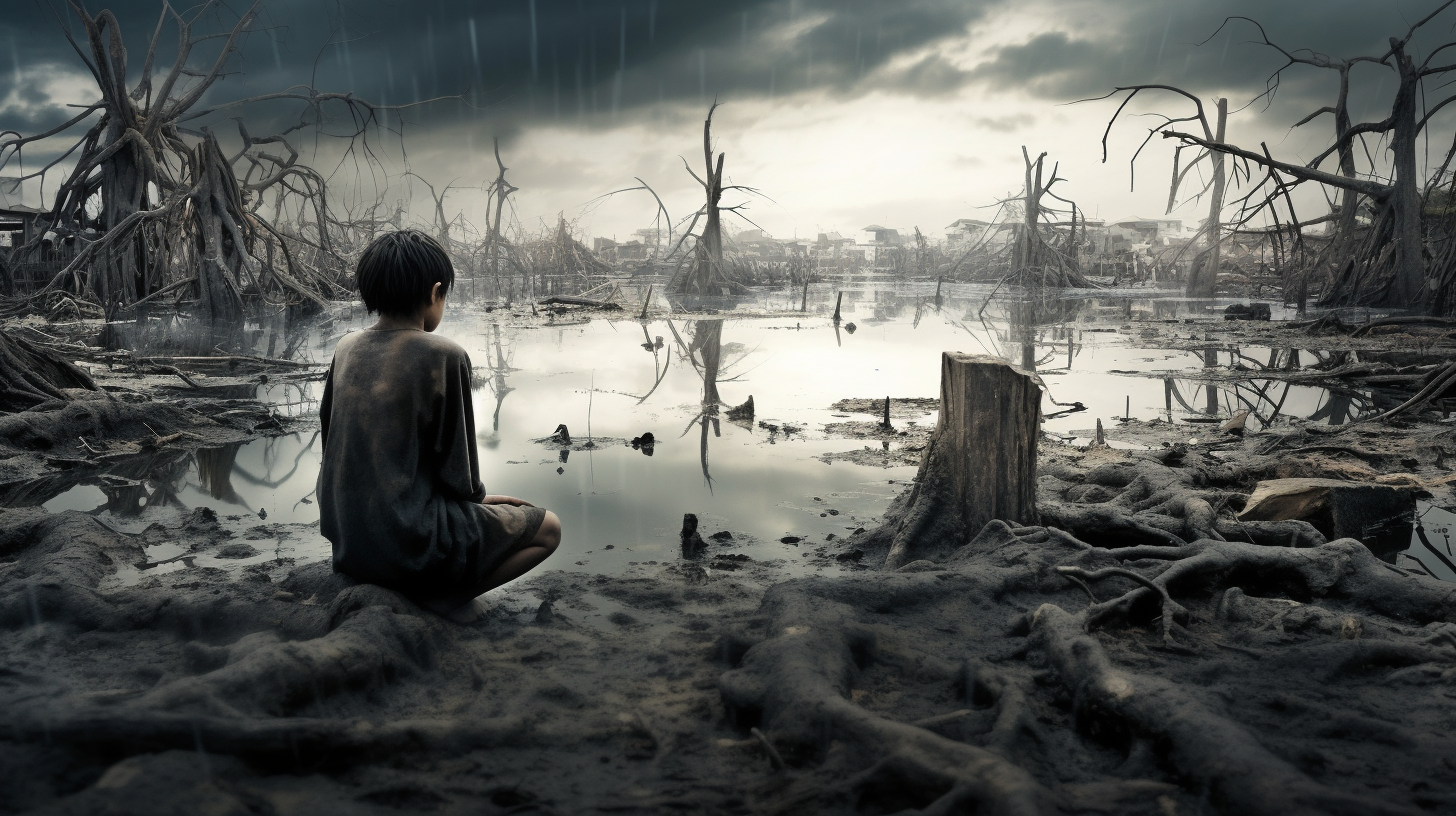Amidst the stark, monochromatic cities where the blue of the sky is as mythical as tales of dragons, and where every shrill siren could announce the next cataclysm, there lies a silent ongoing exodus. An eerie prelude to Noah’s age, not of salvation this time, but of perpetual vagrancy. The oceans, once cradles of ancient civilizations, have become ruthless usurpers, ousting millions from their ancestral hearths. In "Outcasts of the Flood – The Rising Tide of Climate Refugees," we unravel the stories of those ensnared in nature’s relentless siege.
The phenomenon is not a glance into the abyss of some fictitious future; it is the stark reality of our present day. Coastlines that cradled humanity’s first steps are now treacherous; they swallow whole communities, leaving behind only the whispers of despair. The world’s stage beholds its newest actors: climate refugees, individuals, and communities forcibly displaced because their homes are literally sinking beneath the waves.
From the sinking isles of the Pacific to the inundated coastal cities of Asia, stories of loss and adaptation emerge. In Bangladesh, where the ground is as fluid as the air is dense, families uproot generations of history as casually as the river erodes their land. "If the water is our home, we have become its unwelcome guests," murmurs an elder in a temporary shelter, his gaze lost in a maze of makeshift tents. It is a harrowing reality echoed in megacities like Jakarta, where the sea gnaws at the foundations of skyscrapers as if appraising its next meal.
This crisis transcends borders, with the ‘privileged’ West not immune. The Gulf Coast of the United States, where hurricanes are a cruel mistress, spins a grim rhapsody of its own. Climate migration is no longer a phenomenon of distant lands; it is as local as it is global. Miami’s high-rises stand as beleaguered bastions against the persistent assault of an ever-encroaching sea. Here, a real estate billboard half-submerged whispers of a paradise lost, its message as ironic as the sardonic grin of fate.
As we venture further into this narrative, we confront the dissonant symphony of governmental inaction and societal indifference. Climate refugees find scant solace in foreign lands; they are the outcasts among us—dispossessed not only of their land and heritage but also of their identity. They are a reminder of our collective failure, a mirror reflecting the cost of our environmental hubris.
What does it mean to belong when the terra firma itself rejects your existence? In this story, the legacy of climate refugees hovers between the lines, a testament of adaptation and perseverance. Yet, this adaptation is neither welcome nor triumphant—it is the forlorn resignation to a relentless question asked by the universe: adapt or perish. And perish they might, for the welcome they receive is often colder than the waters they fled.
Perhaps the only reprieve in this bleak vista is the burgeoning sense of solidarity, born out of sheer necessity, that knits the fabric of refugee communities. Shadow economies and social structures emerge like fragile saplings on the scarred landscape, defying the harsh winds of their cruel circumstances. But is this enough to sew back the tapestry of their upended lives?
As we cast our gaze to the horizon, where the tumultuous sea meets the squalor of temporary relief camps, it is evident that this tide will only rise, and with it, the number of those cast adrift. Or, as one climate refugee aptly resigns, "We are but flotsam on the waves of a world we once called home."
